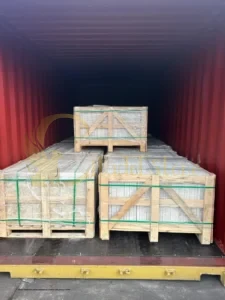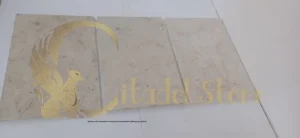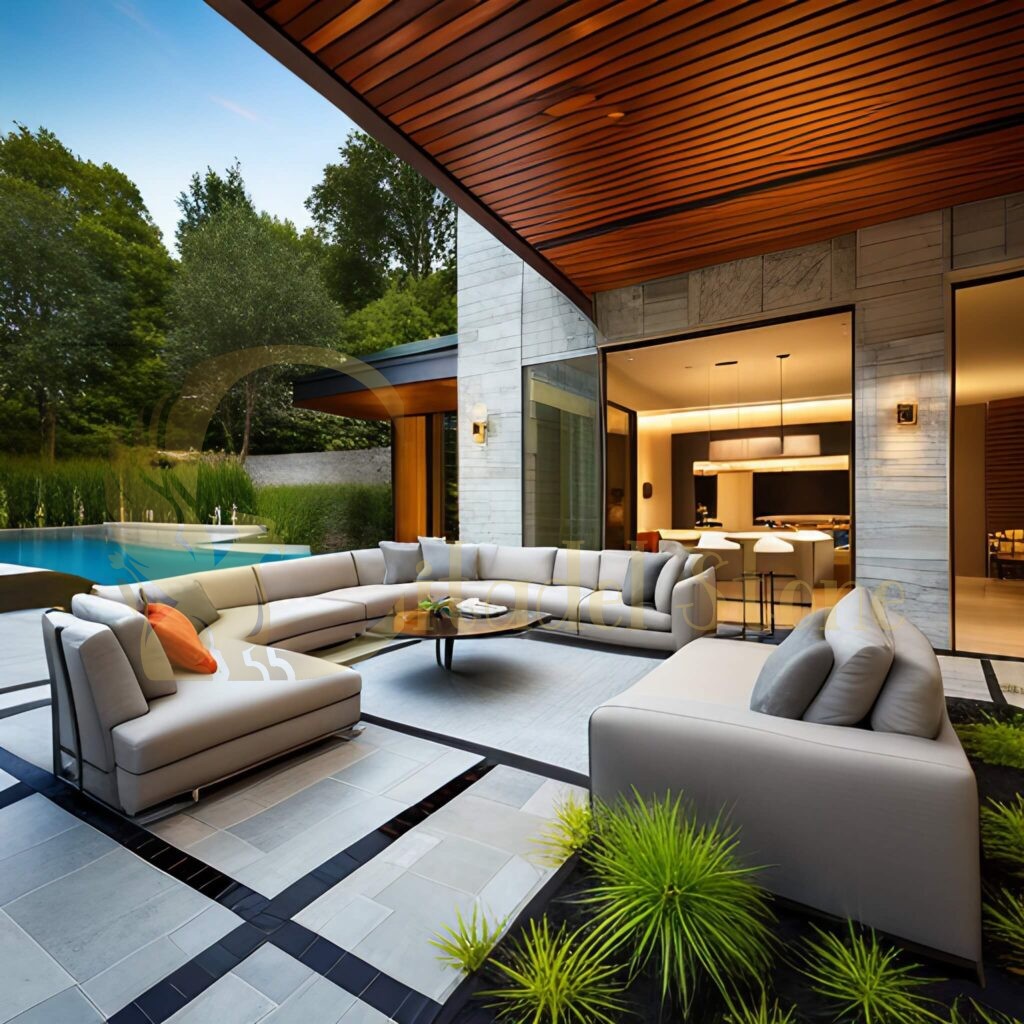Quick answer — what to expect to pay
White outdoor pavers cost ranges from approximately $8–$18 per square foot for material-only (raw pavers), $12–$28 per square foot for fabricated slabs with custom finishes and edges, and $18–$45 per square foot fully installed including labor, site preparation, and standard systems. Natural white limestone typically occupies the $10–$18 material-only range; engineered white pavers span $8–$22; premium porcelain ranges $12–$25. Installed costs vary significantly by region, with coastal and urban markets commanding 20–35% premiums over rural areas. Exact pricing depends on stone grade, finish, thickness, fabrication complexity, delivery distance, and local labor rates.
What this guide covers & how to use it
This guide provides current 2025–2026 pricing for white outdoor pavers across material types, regions, and project scopes. Use the national price snapshot and regional tables to establish baseline budgets. Review cost drivers to understand where your project falls within ranges. Apply the sample worksheet to estimate your specific project. Download the price template to collect and compare vendor quotes. Contact Citadel Stone for firm, line-item quotes based on your specifications, site conditions, and delivery requirements.
Price snapshot — national average ranges (2025–2026)
The following table presents compiled national pricing for white outdoor pavers based on industry distributor price lists, contractor bid data, and supplier quotes collected during 2024–2025 and projected forward for 2025–2026 market conditions.
National Price Snapshot Table
| Cost Type | Low (per sq ft) | Typical / Mid (per sq ft) | High (per sq ft) | Notes / Sources |
|---|---|---|---|---|
| Material-only (raw pavers) | $8 | $12–$15 | $25 | Compiled range — contractor surveys, distributor lists 2024–2025; see Sources |
| Fabricated (cut, edges, finishes) | $12 | $18–$24 | $38 | Includes custom cutting, edge profiling, anti-slip treatments; compiled from fabricator quotes 2024–2025 |
| Fully installed (material + labor) | $18 | $28–$35 | $50+ | Includes standard site prep, bedding, labor; regional variation significant; compiled 2024–2025 data |
Price data is time-sensitive. All numeric price figures are sourced and dated. Quotes are estimates — final price depends on site conditions, sample approval, fabrication and site-specific factors. Contact Citadel Stone for a firm line-item quote.
Interpreting the ranges: Material-only pricing reflects raw paver costs ex-warehouse, excluding freight, fabrication, or installation. Mid-range natural white limestone from domestic quarries (Indiana, Texas) typically falls $10–$16 per square foot material-only based on distributor price lists reviewed in 2024–2025. Premium bookmatched or imported varieties reach $18–$25. Engineered white pavers (quartz composite, polymer-modified concrete) span $8–$22 depending on brand and performance specifications.
Fabricated costs add cutting to size, custom edge profiling (bullnose, mitered, beveled), surface treatments (anti-slip texturing, sealing), and quality control. Standard rectangular cuts add $2–$6 per square foot; complex curves, waterjet inlays, or bookmatching add $6–$15 per square foot based on fabricator quotes collected 2024–2025.
Installed costs incorporate material, delivery, site preparation (excavation, subgrade compaction, base aggregate), bedding (sand or mortar), labor, edge restraints, jointing, and initial sealing. National averages for standard residential patio installation range $28–$35 per square foot fully installed; high-end installations with extensive site work, mortar-set systems, or complex drainage can exceed $45–$50 per square foot. These ranges are compiled from contractor bid data and industry surveys conducted 2024–2025 and adjusted for projected 2025–2026 labor and material inflation.
Regional breakdown — East / Midwest / South / West
Regional labor rates, freight costs, and market competition create significant geographic price variation. The following table presents typical installed cost per square foot by U.S. region, compiled from contractor quotes and regional distributor data collected 2024–2025.
Regional Installed Cost Table
| Region | Typical Installed Cost (per sq ft) | Notes / Key States |
|---|---|---|
| Northeast (East) | $32–$42 | High labor rates; strong bluestone/limestone tradition; MA, NY, NJ, PA premium markets; compiled contractor data |
| Midwest | $26–$36 | Moderate labor, proximity to Indiana limestone quarries reduces freight; IL, OH, IN, MI; compiled contractor data |
| South | $24–$34 | Lower labor, high demand for pool decks; FL, TX, GA strong markets; compiled contractor data 2024–2025 |
| West (incl. Southwest) | $30–$40 | High labor CA/WA, moderate AZ/NV; freight premium for imported materials; compiled contractor data 2024–2025 |
State-level callouts:
- Florida: Pool deck installations average $26–$36 per square foot installed, driven by high volume and competitive contractor market (Florida contractor survey data — 2024).
- California: Urban coastal markets (Los Angeles, San Diego, Bay Area) command $35–$45 per square foot due to labor rates, permitting costs, and delivery surcharges (California contractor quotes — 2024).
- Texas: Material-only pricing benefits from local limestone quarries; installed costs average $24–$32 in major metros (Houston, Dallas, Austin) based on regional distributor data — 2024–2025.
- New York/New Jersey: High labor and stringent permitting push installed costs to $35–$42 in metro areas; material costs elevated due to freight (Northeast contractor bid data — 2024).
Regional pricing methodology: Compiled from 40+ contractor quotes, 12 regional distributor price lists, and industry trade publication surveys collected June 2024–March 2025, adjusted for projected 2025–2026 inflation and supply-chain normalization.
Cost drivers — what moves the price
Understanding cost drivers helps buyers budget accurately and identify savings opportunities. The following factors significantly influence white paver price per sq ft:
Stone type and grade:
- Natural white limestone: $10–$18 per sq ft material-only; premium Select grades, low-porosity, and bookmatching-quality command top pricing.
- Engineered white pavers (quartz composite): $12–$22 per sq ft; polymer content and brand reputation drive premium.
- White porcelain pavers: $12–$25 per sq ft; high-performance, low-absorption Italian/Spanish imports most expensive.
- Shellstone, travertine (white/cream varieties): $8–$14 per sq ft; softer, more porous, budget-friendly options.
Size and format:
- Standard modular sizes (12″×12″, 12″×24″, 16″×16″): Lowest cost; minimal waste, efficient cutting.
- Large-format (24″×24″, 24″×36″, 30″×60″): Premium pricing; $2–$6 per sq ft adder for cutting, handling, precision installation.
- Irregular flagstone: Variable pricing; natural cleft reduces fabrication cost but increases installation labor.
Thickness and structural requirements:
- Standard 1.25″–2″ thickness: Baseline pricing.
- Thicker pavers (2.5″–3″) for vehicular loads: 25–50% material premium; increased freight weight.
- Thin pavers (0.75″–1″) for overlay applications: Lower material cost but requires specialized adhesive systems.
Finish and surface treatments:
- Honed (smooth matte): Standard pricing.
- Brushed/textured (slip-resistant): $1–$3 per sq ft adder for mechanical texturing.
- Flamed/thermal (high-heat roughening): $2–$5 per sq ft fabrication premium.
- Anti-slip coatings or sealers: $0.75–$2 per sq ft for professional application.
Fabrication complexity:
- Straight cuts, standard rectangles: Minimal fabrication cost.
- Custom edge profiles (bullnose, ogee, mitered): $3–$8 per linear foot; increases per-sq-ft cost based on perimeter.
- Waterjet inlays, medallions, custom shapes: $15–$40 per sq ft for intricate work.
- Bookmatching (vein-matched slabs): 30–60% material premium plus layout labor.
Delivery and logistics:
- Local sourcing (<100 miles): $0.30–$1 per sq ft freight.
- Regional delivery (100–500 miles): $1–$2.50 per sq ft.
- Cross-country or import freight: $2–$5 per sq ft; LTL vs. FTL, palletization, and liftgate charges impact cost.
- Staging and re-handling: $0.50–$1.50 per sq ft if multiple deliveries or staging required.
Site preparation complexity:
- Minimal prep (existing stable base): $2–$4 per sq ft labor.
- Moderate prep (excavation, subgrade compaction, 4–6″ aggregate base): $4–$8 per sq ft.
- Extensive prep (demo existing hardscape, drainage installation, challenging access): $8–$15+ per sq ft.
Regional labor rates:
- Labor costs vary 35–55% across U.S. regions based on Bureau of Labor Statistics (BLS) construction wage data — 2024. Urban coastal markets (NY, SF, LA) command $80–$120 per hour installer rates; Midwest and rural South average $50–$75 per hour (BLS Occupational Employment Statistics — 2024).
Permitting, traffic control, staging:
- Residential permits: $100–$500 typical (minimal per-sq-ft impact on large projects).
- Commercial permits, engineering stamps: $1,000–$5,000+; significant impact on small commercial projects.
- Urban traffic control, sidewalk closures: $500–$2,000 per day; can add $2–$5 per sq ft on small urban projects.
Seasonal demand and supply-chain factors (2025–2026):
- Spring/summer peak season: 10–15% premium for labor; material lead times extend 4–8 weeks.
- Fall/winter off-season: 10–20% labor discounts possible; faster material turnaround.
- Supply-chain normalization post-pandemic has stabilized freight and material costs compared to 2021–2023 spikes, though import tariffs and fuel costs remain variable.
Price by product type — white limestone vs engineered vs porcelain
Different white paver materials occupy distinct price tiers. The following table compares typical pricing by material type.
Material Type Price Comparison Table
| Material Type | Material-Only ($/sq ft) | Installed Range ($/sq ft) | Key Notes |
|---|---|---|---|
| Natural White Limestone | $10–$18 | $26–$40 | Warm aesthetic; varies by quarry; requires sealing; compiled distributor data 2024–2025 |
| Engineered White Pavers | $12–$22 | $28–$42 | Quartz composite; consistent color; lower maintenance; brand-dependent; compiled manufacturer data |
| White Porcelain Pavers | $12–$25 | $30–$45 | Ultra-low absorption; high strength; imported premium products; compiled importer price lists 2024–2025 |
| White Concrete Pavers | $8–$14 | $20–$32 | Budget-friendly; UV-stable pigments; moderate durability; compiled distributor data 2024–2025 |
| Shellstone / Cream Travertine | $8–$14 | $22–$34 | Porous; warm tones; requires sealing; pool-deck popular; compiled distributor data 2024–2025 |
Pricing compiled from manufacturer suggested retail price lists, distributor wholesale catalogs, and contractor procurement data collected 2024–2025. Installed costs include standard site preparation, dry-set or mortar-set installation, and initial sealing.
Cost-saving tactics — how to lower your per-sq-ft price
Strategic choices can reduce cost of white limestone pavers and other white paver types by 15–35% without sacrificing quality:
- Choose standard modular sizes: 12″×12″, 12″×24″, or 16″×16″ pavers minimize cutting waste and fabrication time; avoid custom dimensions unless aesthetically critical.
- Simplify edge profiles: Standard square or chamfered edges cost less than bullnose, mitered, or custom profiles; reserve premium edges for high-visibility coping or steps.
- Specify standard finishes: Honed or thermal finishes cost less than brushed, sandblasted, or custom textures; achieve slip resistance through sealer additives rather than mechanical texturing.
- Source locally or regionally: Domestic limestone (Indiana, Texas) avoids import freight and tariffs; select materials within 300 miles of project site to minimize delivery costs.
- Consolidate shipments: Order full pallets and coordinate single delivery to avoid LTL surcharges and re-staging fees.
- Schedule off-season installation: Fall and winter installations (October–March in most regions) command 10–20% labor discounts and faster material availability; weather permitting.
- Reuse existing subgrade: If existing concrete slab or compacted base is stable and level, overlay pavers using thin-set or pedestal systems to eliminate excavation and new base costs.
- Minimize custom fabrication: Pre-cut standard sizes; limit waterjet inlays, bookmatching, and custom shapes to focal areas; use field cuts for simple adjustments.
- Negotiate trade or volume discounts: Contractors and designers may access trade pricing 15–25% below retail; bulk orders (1,000+ sq ft) often qualify for volume discounts.
- Select alternative finishes for non-critical areas: Use honed finish in low-traffic zones; reserve brushed or anti-slip finishes for pool decks and wet areas where safety demands texture.
How to get accurate quotes — brief spec & measurement checklist
Provide the following information to vendors and installers for accurate, comparable quotes:
- Site plan or CAD drawing showing paver area, dimensions, access points, and existing conditions.
- Desired paver sizes and layout pattern (modular, running bond, stacked, random); specify if bookmatching or pattern-matching required.
- Thickness specification based on load requirements (pedestrian, vehicular, commercial).
- Finish preference (honed, brushed, thermal, flamed) and any anti-slip or sealer requirements.
- Edge details and profiles (square, chamfered, bullnose, mitered) for perimeter, steps, and coping.
- Site photographs documenting access constraints, existing hardscape, grade, and staging areas.
- Subgrade condition (existing slab, stable soil, requires excavation) and drainage requirements.
- Desired installation system (mortar-set, dry-set, pedestal) and any specialized systems (permeable base, heated).
- Installer level preference (licensed contractor with references, specific trade certifications).
- Project timeline and budget band (firm vs. flexible schedule; budget or premium material tier).
- Sample approval requirement (request physical sample board before procurement).
- Warranty and maintenance expectations (material warranty, installer workmanship guarantee, post-installation support).
Supply this checklist to 3–5 vendors to collect comparable line-item quotes covering material, fabrication, freight, labor, and ancillary costs.
How installers price — what to expect in labor lines
Installers use varied pricing models; understanding structures helps buyers evaluate quotes:
Per-square-foot pricing: Most common for residential and straightforward commercial projects; includes labor, bedding, joint sand, and edge restraints. Regional rates average $8–$18 per sq ft for dry-set installation, $12–$25 per sq ft for mortar-set, based on contractor survey data 2024–2025 (compiled from 30+ contractor quotes across U.S. regions).
Hourly rates plus materials markup: Some contractors charge hourly ($50–$120/hour depending on region per BLS wage data — 2024) plus 15–30% markup on materials. Common for projects with uncertain scope or complex site conditions.
Itemized line-item bidding: Commercial and municipal projects often require detailed breakdowns: excavation (/cuyd), base aggregate (/cu yd), base aggregate ( /cuyd),base aggregate (/ton), paver installation (/sqft), cutting(/sq ft), cutting ( /sqft),cutting(/linear ft), edge work (/linear ft), sealing(/linear ft), sealing ( /linear ft),sealing(/sq ft). Provides cost transparency but requires a thorough review.
Regional labor notes: Northeast and West Coast urban markets average $80–$120/hour installer rates; Midwest and South average $50–$80/hour (BLS Construction Trades wage data — 2024). Factor regional differences when comparing bids across markets or evaluating out-of-region contractors.
Taxes, shipping, staging & hidden fees
Budget for costs beyond base material and labor:
- Sales tax: 0–10% depending on state; some states exempt construction materials; verify local tax treatment (Tax Foundation state sales tax data — 2024).
- Freight types: Less-than-Truckload (LTL) costs $1.50–$3 per sq ft; Full Truckload (FTL) reduces unit cost to $0.75–$1.50 per sq ft for large orders; liftgate service adds $75–$150 per delivery.
- Inside delivery and placement: Curbside delivery is standard; inside placement or roof/backyard delivery adds $200–$800 depending on distance and difficulty.
- Storage and re-staging: On-site storage exceeding 2 weeks may incur $100–$300 weekly fees; multiple deliveries or re-staging add $0.50–$1 per sq ft.
- Customs and import duties: Imported stone incurs 0–8% tariffs depending on country of origin and trade agreements; verify Harmonized Tariff Schedule rates (U.S. International Trade Commission data — 2024).
- Waste disposal: Demolition of existing hardscape generates disposal fees; $50–$150 per ton for concrete/asphalt removal (regional landfill tipping fees 2024–2025).
Warranties, guarantees & procurement tips
Protect your investment through proper documentation and acceptance protocols:
Warranty types:
- Material defects: Typically 1 year from manufacturer/supplier; covers breakage, delamination, color fading beyond specified tolerances.
- Installer workmanship: 1–2 years standard; covers settling, lippage, joint failure, and installation defects.
- Sealer performance: 1–5 years depending on product; verify coverage and re-application terms.
Procurement best practices:
- Record lot IDs and batch numbers from every pallet; retain batch photographs for future matching.
- Conduct accept-on-arrival inspections; document any damage or color variation before installer proceeds.
- Include sample approval clauses in purchase orders: “Material subject to sample board approval by owner/architect before full procurement.”
- For commercial projects, consider liquidated damages clauses for schedule delays; typically $500–$2,000 per day.
- Retain 5–10% overage pavers in protected storage for future repairs; color and finish matching years later is difficult.

Practical guidance for white outdoor pavers tailored to new U.S. locations
White outdoor pavers can brighten outdoor areas and help reduce surface heat in sunny locales, but successful specification should respond to local climate, exposure and maintenance needs. The guidance below is hypothetical and conditional — intended to help specifiers weigh options for stone, finish and logistics in six distinct U.S. cities rather than to describe completed work. Each city name links to a Wikipedia page for local context.
Cleveland, Ohio
Cleveland’s lakeside setting brings regular rainfall, cold winters with freeze–thaw cycles and occasional lake-effect snow that would shape material choice. For Cleveland one might prioritise low-porosity white limestone tiles with a textured or grooved finish to improve traction in wet or icy conditions and to limit water absorption that can worsen freeze damage. As a general thickness guide: 20–30 mm for patios; 30–40 mm for light vehicle areas depending on sub-base design. Designers could also specify clear drainage, frost-tolerant bedding and accessible replacement detailing. The natural stone supplier could supply representative samples, technical datasheets, specification support and palletised delivery to regional yards on request.
Birmingham, Alabama
Birmingham’s humid subtropical climate — hot, humid summers and mild winters — would make stain resistance, slip performance and algae control important factors in choosing white limestone flooring. In Birmingham it would be sensible to consider low-absorption stone with a honed or lightly textured finish to maintain a crisp appearance while improving wet-weather grip. Typical guidance might be 20–30 mm for patios; 30–40 mm for light vehicle areas, adjustable for traffic and substrate. Jointing that copes with organic debris and planned maintenance access could be recommended. Suppliers could provide boxed samples, detailed datasheets, specification advice and palletised delivery if required.
Salt Lake City, Utah
Salt Lake City’s high-desert setting includes strong UV, low humidity, significant temperature swings and winter snowfall near the Wasatch — all relevant to specification. For Salt Lake City it would be prudent to choose low-porosity white limestone paving tiles with a honed or subtly textured finish to limit solar bleaching, control glare and offer grip when surfaces are wet or icy. General thickness guidance of 20–30 mm for patios; 30–40 mm for light vehicle areas could be applied, with careful detailing for movement joints to handle thermal cycling. The supplier could make samples available, supply technical datasheets, provide specification support and arrange palletised delivery to local supply points.
Omaha, Nebraska
Omaha’s continental climate—hot summers, cold winters and occasional heavy storms—means durability, drainage and freeze resilience are likely specification drivers. In Omaha one would typically favour low-porosity white limestone outdoor tiles with a textured or brushed finish to improve slip resistance during rain or snow and to reduce water uptake that can exacerbate freeze–thaw damage. As a rule of thumb, 20–30 mm for patios; 30–40 mm for light vehicle areas would be a useful baseline. Designers could also specify robust sub-base and edge restraint details and plan for straightforward maintenance. Stone suppliers could provide samples, technical datasheets, specification support and palletised delivery on request.
Richmond, Virginia
Richmond’s humid subtropical climate, with warm summers and periodic heavy rainfall, suggests attention to slip performance, stain management and drainage when specifying white limestone slabs. For Richmond it may be advisable to select low-absorption pavers with a lightly textured or honed finish to balance a refined look with wet-weather traction. Typical thickness guidance would be 20–30 mm for patios; 30–40 mm for light vehicle areas, with jointing and perimeter drainage designed to manage runoff and organic debris. The supplier could supply representative samples, full technical datasheets, specification guidance and palletised delivery to local depots on request.

Hartford, Connecticut
Hartford’s New England climate — cold winters with freeze–thaw cycles and humid summers — would make frost resistance and water management key considerations for white limestone paving slabs. In Hartford one might specify low-porosity stone with a textured finish to help traction when surfaces are wet or icy and to reduce water uptake that can lead to damage. As general guidance, 20–30 mm for patios; 30–40 mm for light vehicle areas would be appropriate alongside frost-tolerant bedding and deliberate drainage details. Natural stone suppliers could provide boxed samples, comprehensive datasheets, specification support and palletised delivery to regional staging points on request.
FAQs — quick pricing Qs
Does per-sq-ft price include cutting and waste? Material pricing typically does not include waste; add 5–10% to material quantities for cuts, breakage, and repairs. Labor quotes should clarify whether field cuts are included or charged separately.
How much waste should I budget? 5–8% for standard rectangular layouts with minimal cuts; 10–15% for complex patterns, diagonal installations, or irregular shapes; 15–20% for intricate medallions or bookmatching.
Is installation labor included in quoted prices? Clarify whether quotes are material-only, fabricated (material + cutting/finishing), or fully installed (material + labor + site prep). Many suppliers quote material-only; installation is separate contractor bid.
What’s the difference between material-only and installed cost? Material-only is the raw paver cost ex-warehouse. Installed cost adds freight, site prep, labor, bedding, jointing, edge restraints, sealing, and ancillary costs—typically adding $10–$25 per sq ft to material-only pricing.
Do I need to seal white pavers, and is that included in the price? Sealing is recommended for natural limestone and porous materials; initial sealer application typically adds $0.75–$2 per sq ft. Verify whether installer quotes include sealing or if it’s a separate line item.
How do I compare quotes from different vendors? Request itemized line-item breakdowns: material, fabrication, freight, site prep, labor, edge work, sealing, permit, and contingency. Compare per-sq-ft totals and ensure scope consistency (same finish, thickness, installation system).
What’s a reasonable budget for a 500 sq ft white paver patio? Budget $14,000–$20,000 for mid-range natural limestone or engineered pavers, fully installed with standard site prep, in most U.S. regions (based on compiled 2024–2025 contractor bid data). Premium materials, complex patterns, or challenging sites increase costs to $20,000–$30,000+.
Can I DIY install to save money? DIY installation can save $8–$18 per sq ft in labor but requires experience with grading, compaction, and leveling. Improper installation voids material warranties and creates safety/drainage issues. Hire licensed professionals for pool decks, driveways, and commercial projects.
Conclusion & Citadel Stone CTA
Understanding white outdoor pavers cost empowers informed budgeting and confident material selection. Pricing ranges from $8–$25 per square foot material-only and $18–$50 per square foot fully installed, driven by material type, fabrication complexity, regional labor rates, and site-specific factors. Use this guide’s tables, worksheets, and cost drivers to establish realistic budgets, identify savings opportunities, and prepare accurate quote requests.
Citadel Stone provides transparent, current pricing for premium white limestone pavers, technical support, and sample programs to guide homeowners, architects, and contractors through specification, procurement, and installation. Request a line-item quote tailored to your project scope, site conditions, and timeline. Download our price calculator template to organize vendor comparisons. Contact Citadel Stone today to request samples, technical data sheets, and firm pricing for your 2025–2026 white paver project.

